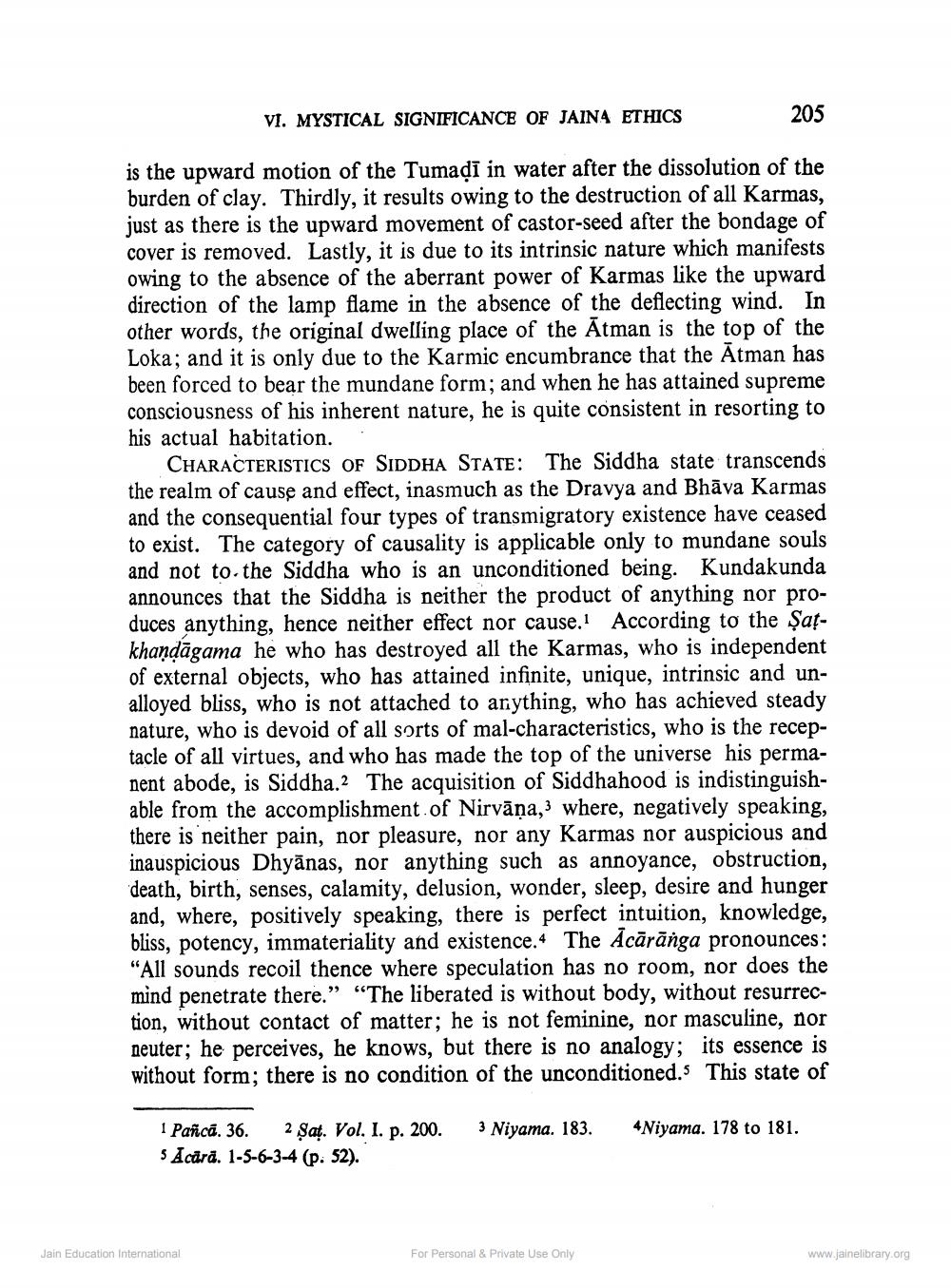________________
VI. MYSTICAL SIGNIFICANCE OF JAINA ETHICS
205
is the upward motion of the Tumadī in water after the dissolution of the burden of clay. Thirdly, it results owing to the destruction of all Karmas, just as there is the upward movement of castor-seed after the bondage of cover is removed. Lastly, it is due to its intrinsic nature which manifests owing to the absence of the aberrant power of Karmas like the upward direction of the lamp flame in the absence of the deflecting wind. In other words, the original dwelling place of the Ātman is the top of the Loka; and it is only due to the Karmic encumbrance that the Ātman has been forced to bear the mundane form; and when he has attained supreme consciousness of his inherent nature, he is quite consistent in resorting to his actual habitation. .
CHARACTERISTICS OF SIDDHA STATE: The Siddha state transcends the realm of cause and effect, inasmuch as the Dravya and Bhāva Karmas and the consequential four types of transmigratory existence have ceased to exist. The category of causality is applicable only to mundane souls and not to the Siddha who is an unconditioned being. Kundakunda announces that the Siddha is neither the product of anything nor produces anything, hence neither effect nor cause. According to the Şatkhandāgama he who has destroyed all the Karmas, who is independent of external objects, who has attained infinite, unique, intrinsic and unalloyed bliss, who is not attached to anything, who has achieved steady nature, who is devoid of all sorts of mal-characteristics, who is the receptacle of all virtues, and who has made the top of the universe his permanent abode, is Siddha.2 The acquisition of Siddhahood is indistinguishable from the accomplishment of Nirvāṇa, where, negatively speaking, there is neither pain, nor pleasure, nor any Karmas nor auspicious and inauspicious Dhyānas, nor anything such as annoyance, obstruction, death, birth, senses, calamity, delusion, wonder, sleep, desire and hunger and, where, positively speaking, there is perfect intuition, knowledge, bliss, potency, immateriality and existence. The Acārānga pronounces: "All sounds recoil thence where speculation has no room, nor does the mind penetrate there." "The liberated is without body, without resurrection, without contact of matter; he is not feminine, nor masculine, nor neuter; he perceives, he knows, but there is no analogy; its essence is without form; there is no condition of the unconditioned. This state of
3 Niyama. 183.
Niyama. 178 to 181.
1 Panca. 36. 2 Sat. Vol. I. p. 200. 5 Acūra. 1-5-6-3-4 (p. 52).
Jain Education International
For Personal & Private Use Only
www.jainelibrary.org




